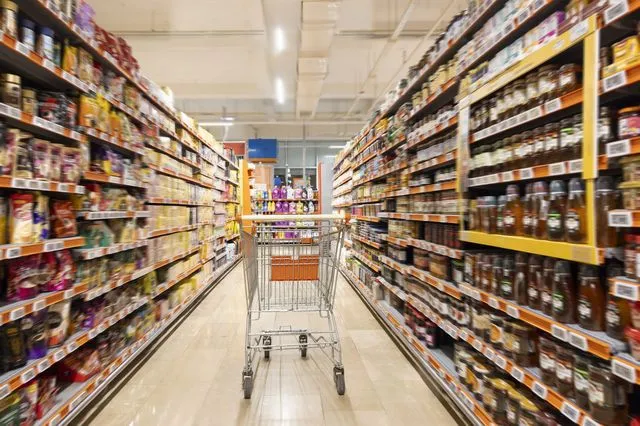Supermarkets: The new cycle of market consolidation and the signals for the prices
Διαβάζεται σε 4'
In relation to inflation, supermarket representatives said that although it is easing, there will be no return to 2019 price levels.
- 20 Νοεμβρίου 2025 10:10
Rising operating costs and limited disposable income are driving a new wave of consolidation in the organised retail sector. Industry executives essentially predict that the cycle of acquisitions will continue, since profit margins in supermarkets are narrow and the ratio of physical stores per capita is unusually high for the EU. In other words, there are more stores than the viability index would justify.
As Giannis Masoutis, head of the Masoutis chain and vice-president of the Hellenic Supermarkets Association, said yesterday during a press conference presenting the sector’s 2024 financial results:
“The rising cost of energy, high rents, and broader expenses have created a particularly suffocating environment for many small and medium-sized businesses in the sector. This pressure is horizontal across the whole market.”
He added that the pressure is even more intense for small and mid-sized chains and that more acquisitions and market concentration should be expected — something the government must address.
Net profit margin down to 1.65%
The Association’s president and head of the Metro group, Aristotelis Panteliadis, described a sector that has invested €3.5 billion over the last decade, even as profitability declines, despite public accusations of “supermarket windfall profits.”
According to 2024 data, total supermarket turnover reached €13.061 billion (ex-VAT) and pre-tax profits €215 million. Net profit margins fell from 1.84% in 2023 to 1.65% in 2024, while EBITDA dropped from 6.54% to 5.97%.
“Profitability is decreasing due to rising costs,” he said, noting that a healthy sector requires a net margin of around 3%.
On market consolidation, Panteliadis said that in Europe markets usually stabilise with four to eight major chains and some small differentiated local players. “I think this is a model where the market performs economically while competition still functions. Greece may not necessarily reach that point — perhaps six chains — but it’s a model that could work,” he said.
Populism
Panteliadis also criticised claims of excessive profits, saying that supermarket chains are easy targets for political populism because of their size. “This ultimately makes society suspicious and hostile to entrepreneurship. No one benefits — not citizens, not society.”
Addressing rumours about hidden profits through parallel corporate activities, he referred to Sklavenitis’s subsidiary Glaros and Metro’s Milestone: “Both are companies that produce or import products, invest, and thankfully make profits. Is it bad to be profitable? And what would any chain gain from shifting profits between companies when the tax rate is the same? Let’s put an end to these theories.”
Price easing but no return to 2019 levels
On inflation, he said it is easing but prices will not return to 2019 levels. The only real correction, he stressed, is increasing wages through higher productivity.
“It’s positive that inflation continues to stabilise downward. Some categories show increases, others decreases, but overall the picture is good. However, prices will not go back to where they were five years ago, and they will not fully return.”
He added that boosting productivity is the only way to meaningfully raise incomes and restore purchasing power.
Regarding government anti-inflation measures, he criticised the three-month freeze on promotional offers, saying it now serves no purpose and adds bureaucracy. Other interventions, such as the recent price-cut initiative on 2,000 SKUs, also carry costs for the sector.
Fines fuel populism
Commenting on recent fines imposed on supermarket chains, he said they fuel populist narratives.
“I cannot know whether the companies fined committed violations. What I can say is that, based on the announcements, even if the authority is 100% correct, the amounts are so excessive that I agree with SEV president Spyros Theodoropoulos — these are fines for show.”
He added that they reinforce the idea of the state as “Robin Hood” against supposedly “bad supermarkets,” which helps no one.
Finally, he expressed support for transparency measures such as dual price labelling for fresh products but warned that the exchange of sensitive pricing and invoicing data may conflict with EU and Greek law.
“The law explicitly prohibits sharing invoices. These are issues that require careful handling,” he noted.







































